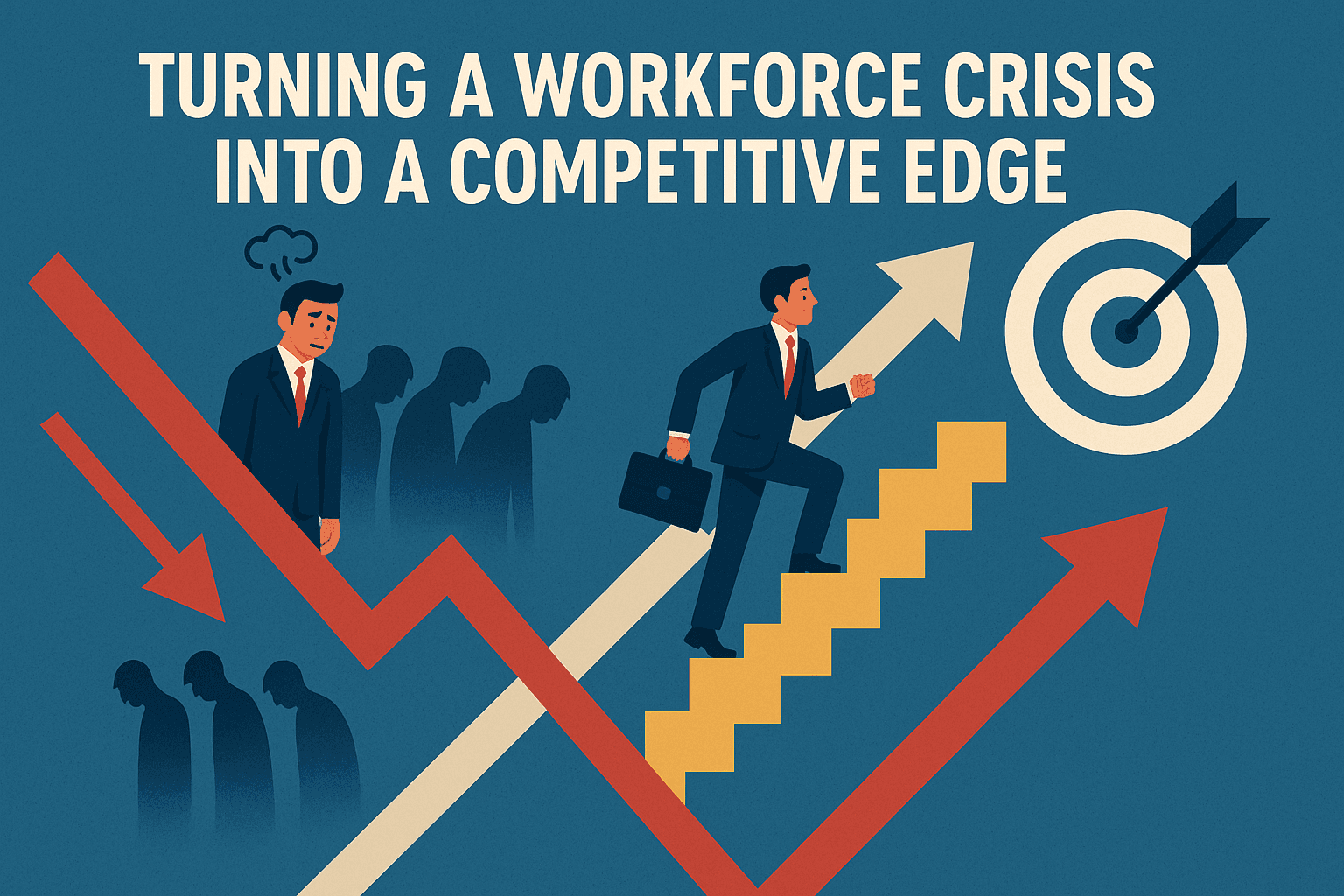


A leading home textile manufacturer—supplying bed sheets, duvet covers, and linens to some of the biggest global retailers—was caught in a cycle they couldn’t break.
Their factories were fitted with state-of-the-art machines, but the shop floors told a different story. Stitching lines stood still because operators didn’t turn up. Finishing teams struggled to meet export checks, and supervisors spent more time firefighting than planning. Despite booming orders, shipments got delayed, rejections piled up, and margins were squeezed.
Machines don’t run factories—people do. And this company was running short.
The leadership realized the hard truth: they had invested heavily in infrastructure but not enough in people. Workers were under-skilled, under-motivated, and unsure of growth opportunities.
We began with a workforce diagnosis—mapping every stage from weaving and processing to cutting, stitching, quilting, finishing, and packing. The gaps were not only technical but cultural. Workers weren’t prepared for multi-SKU fast switching. Finishing staff didn’t fully grasp international standards. And without structured training, frustration grew faster than skills.
Together with the company, we set up a Training & Skill Development Centre just outside the factory gates. It wasn’t a classroom on paper—it was hands-on.
Training wasn’t a one-off. Each batch underwent 2 to 6 weeks of theory, practical, and on-the-job training, followed by rigorous company testing. Once placed, candidates weren’t left alone—we hand-held them for another six weeks with regular visits, counseling, and supervisor feedback sessions.
Within months, the impact was visible:
For this textile leader, the skill centre wasn’t just an HR initiative—it became a strategic asset. By focusing on people, Madasky Consulting helped them stabilize their workforce, hit export timelines, and build a culture of growth.
What began as a manpower shortage ended up becoming the company’s competitive strength.
The client, a leading Indian home textile manufacturer, is a trusted supplier of bed sheets, pillow covers, and duvet sets to some of the world’s most recognized retailers. With decades of experience and a reputation for reliability, the company had invested heavily in world-class machines, advanced automation, and a robust export pipeline. On paper, everything pointed toward sustained growth and efficiency.
But the reality on the shop floor told a different story. Despite the machinery being capable of delivering high volumes with precision, actual output consistently fell short of targets. Shipments were delayed, order backlogs grew, and customer complaints around late deliveries and inconsistent quality began to surface. What should have been a competitive advantage—the company’s investment in technology—was not translating into results.
The leadership dug deeper and realized the gap wasn’t in machinery, infrastructure, or demand—it was in the workforce that powered the machines. Absenteeism was frequent, productivity levels were stagnant, and rework rates were alarmingly high. Skilled operators left for other opportunities, leaving production lines under constant stress. Efficiency gains expected from automation were being neutralized by the instability of the human element.
At this stage, the leadership confronted a critical truth: machines may drive capacity, but people drive performance. Without a stable, skilled, and motivated workforce, even the best technology could not deliver consistent business outcomes. Recognizing this, the company turned to Madasky Consulting to help reimagine its people strategy and build skills as a foundation for sustainable performance.
The Challenge
The workforce challenges were deep-rooted:
The problem wasn’t capacity. It was capability, commitment, and culture.
The Madasky Approach: Skills as the Growth Lever
Madasky Consulting’s strategy was to build people strength equal to machine strength. The aim was to create a system where skills, flexibility, and leadership became the backbone of performance.
We conducted a full value-chain audit—from cutting tables to final packing lines—and identified the root causes of inefficiency:
Step 2: A Three-Tier Skill Development Strategy
We introduced targeted skill modules such as:
Operators were trained to handle multiple machine types (flatlock, overlock, hemming). This meant:
We built a stronger middle layer by coaching supervisors in:
Step 3: Establishing a Training & Skill Development Centre
We set up a dedicated in-house Training Centre within the factory campus—turning training into a continuous performance engine.
Every new recruit went through a foundation program, while existing staff attended skill upgrade workshops linked to certification and career progression.
The Results: One Year Later
The transformation was dramatic and measurable:
The Bottom Line
For this home textile leader, the training centre became more than an HR project—it became a strategic business asset.
Madasky Consulting’s role: By aligning skills with the unique demands of home textiles, we transformed absenteeism and attrition into productivity and pride.
Lesson: Machines may set the pace, but people set the performance.
This transformation proved that the real strength of a manufacturing business lies not just in machinery or market demand, but in the capability and confidence of its people. By treating skills as a strategic investment rather than a cost, the company unlocked higher productivity, stronger buyer trust, and a more committed workforce. For Madasky Consulting, this engagement reinforced our belief that when businesses choose to grow their people, their performance and profitability follow naturally.
Visit - madasky.com
Mail us - info@madasky.com